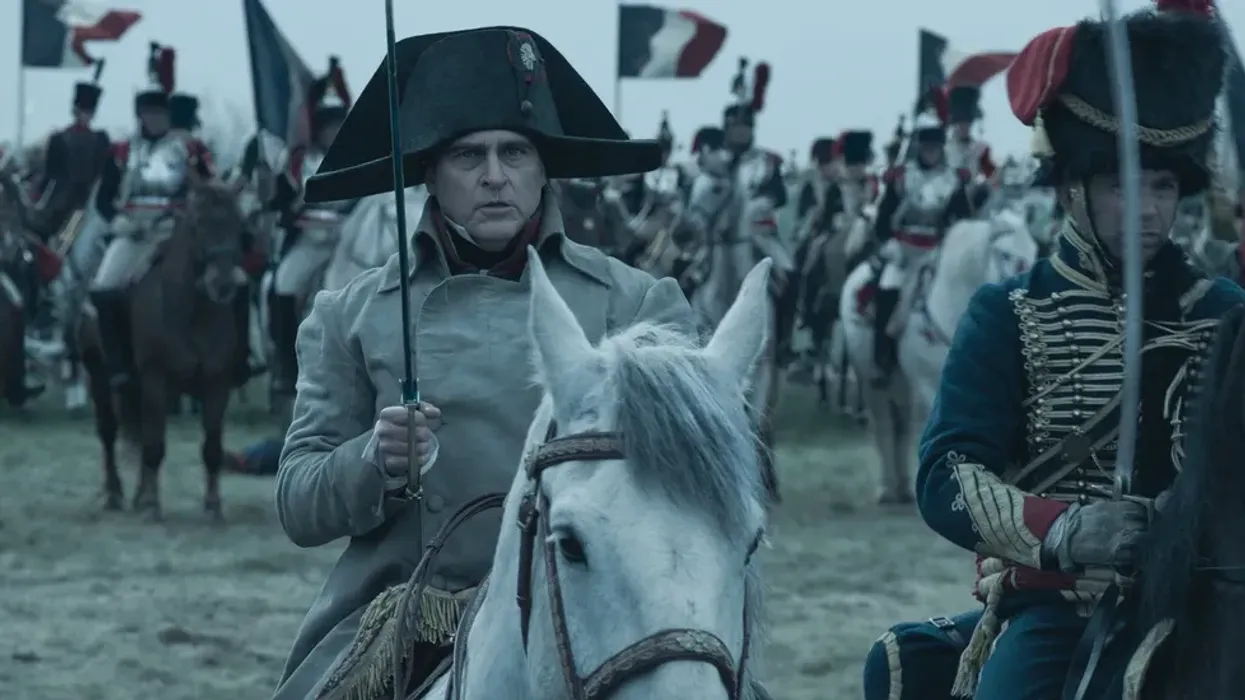How Was Ridley Scott's 'Napoleon' Shot in Just 62 Days?
Ridley Scott movies are well-oiled machines, but shooting a historical epic in just 62 days is wild.

'Napoleon'
Ridley Scott is a legendary director who makes some of the most epic movies of all time. The man behind Gladiator, Black Hawk Down, and Blade Runner is known for his sprawling storytelling and incredible visuals.
Over Thanksgiving, his latest film, Napoleon, opened strong at the box office. It's another epic, following the French general has he takes control of the country and makes his enemies shake in their boots.
But this time out, the famed director, who is 85 years old, was able to complete shooting the movie in just 62 days—how?
Let's dive in.
How Was 'Napoleon' Filmed?
After many decades of shooting both feature films and commercials, Ridley Scott has learned a little about what it takes to have an efficient production.
On this movie, it;'s no different.
Scott worked with cinematographer Dariusz Wolski to capture the look and feel of the world. Scott is famous for his detailed storyboards. And when it came time to shoot scenes, they ran eight to 11 cameras to make sure the battles were captured without wasted hours and from multiple angles.
They used classical paintings as inspiration, often highlighting Napoleon with light around him, as was done in the past. And lots of natural light to make scenes feel more realistic.
Scott is also no stranger to modern technology. they mic'd up many extras during battles to get a more impressive soundscape and it left actors free to focus on the scenes and not to worry about close-ups later.
Let's not forget Scott is working with people he's worked with before, including star Joaquin Phoenix. Having an experienced cast can often perform with fewer takes, saving time.
Still, none of this could happen without a strong script, written by David Scarpa. They have collaborated in the past, but with the storyboards and a strong screenplay, Scott was able to set his shooting days with clear goals, and then utilize any free time to let people experiment and to capture happy accidents.
Scott said of the experience, “I wouldn’t say the rest is easy, but it’s more enjoyable. When you haven’t got it on paper and you’re guessing every day, it becomes a real nightmare. The best form of security is to prep. Normally a film of this scale would take 100 days; we did it in 62. But we’re not showing off, it just gets boring to go on for 100 days. Sixty-two days is a fantastic toboggan ride.”
Ridley Scott's ability to shoot Napoleon in just 62 days is a testament to his mastery in filmmaking, showcasing the power of thorough planning, a skilled team, and the use of advanced technology.
This feat not only highlights Scott's efficiency and expertise but also sets a remarkable standard in the industry for creating high-quality content within tight timeframes.
Take the lessons he's laid out for you and apply them to your own work.
This article was sourced from Indiewire.











